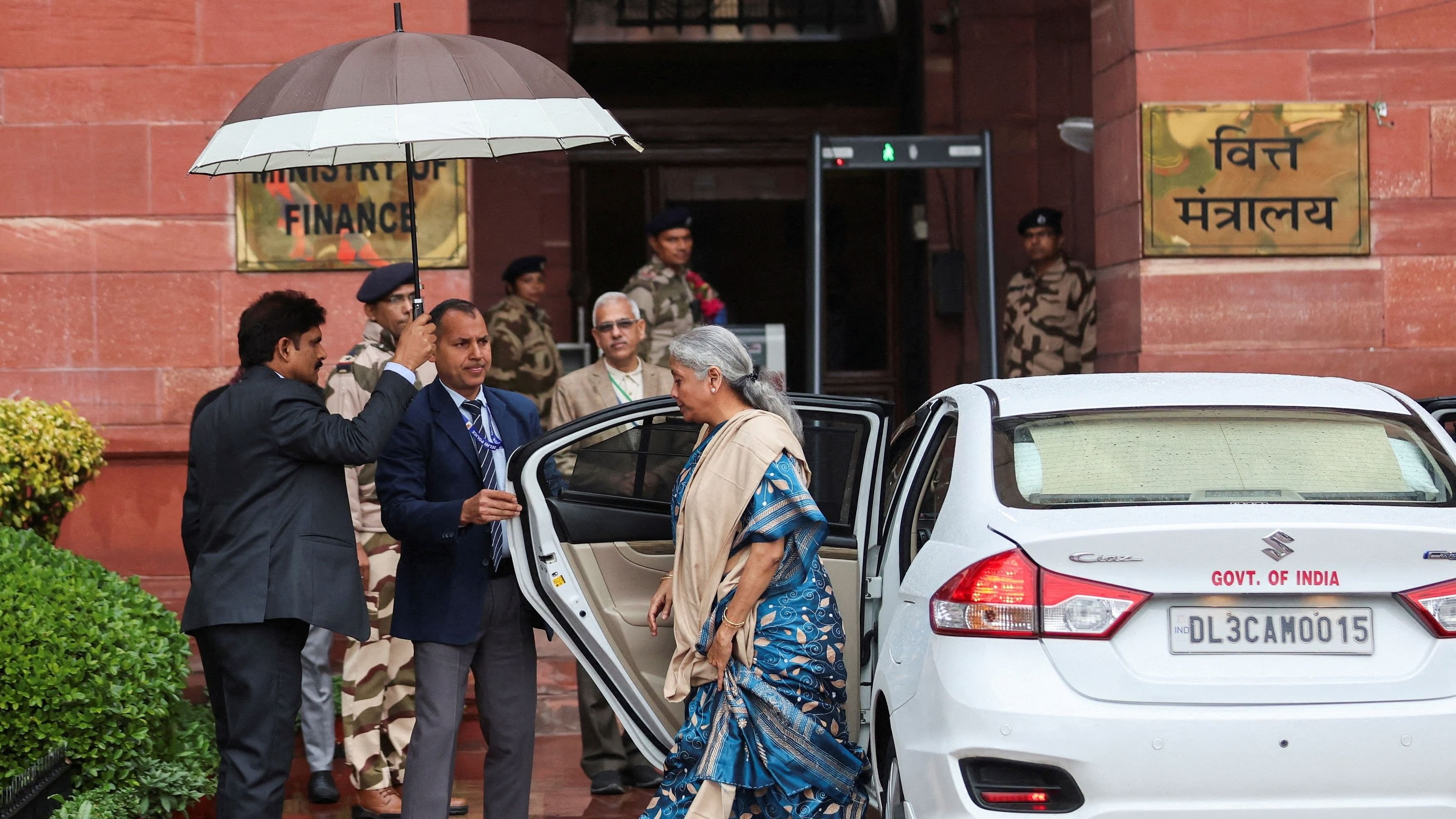
FILE PHOTO: Finance Minister Nirmala Sitharaman arrives at the Finance Ministry before presenting the budget in parliament, in New Delhi, February 1, 2024.
Reuters Photo
New Delhi: Above normal monsoon as predicted by the India Meteorological Department (IMD) will boost production and help in easing food prices, which have been a key challenge for the government, the union Finance Ministry said in a report on Thursday.
Food inflation has remained persistently high in the recent months. Retail food inflation eased marginally to 8.5% in March from 8.7% recorded in the previous month, as per the latest official data.
In its Monthly Economic Review for the month of March, the ministry underlined the steps taken to address food price rise. “Government action on this end has included strengthening of buffers of key food items and making periodic open market releases, easing imports of essential food items through trade policy measures, preventing hoarding through imposition/revision of stock limits, channelling supplies through designated retail outlets etc,” it said.
Further easing of food prices is on the anvil as IMD has predicted above-normal rainfall during the upcoming monsoon (June to September 2024), which is likely to lead to higher production, assuming good spatial and temporal distribution of the rainfall, the ministry added.
The rainfall is predicted to be 6% higher than the long period average.
In a separate report, ratings agency CRISIL noted that vegetable inflation in India remains the most volatile component of food inflation. Measured as standard deviation, volatility in vegetable inflation, at 16.8, was much higher than the 4.1 for overall food inflation from fiscals 2014 to 2023, the rating agency said.
In the financial year 2023-24, while the usual high volatility played out, there were other anomalies that pushed inflation higher. These disturbances included warmer weather, uneven rains and pest attacks.
Vegetables were responsible for about 30% of food inflation in FY24, much higher than their 15.5% share in the food index. While surging prices of tomatoes and onions made headlines in fiscal 2024, the price rise was not limited to these vegetables. Garlic and ginger, for instance, saw triple-digit inflation of 117.8% and 110.4%, respectively. Other vegetables such as brinjal, parwal and beans also saw a spike in inflation.
Deccan Herald is on WhatsApp Channels | Join now for Breaking News & Editor's Picks